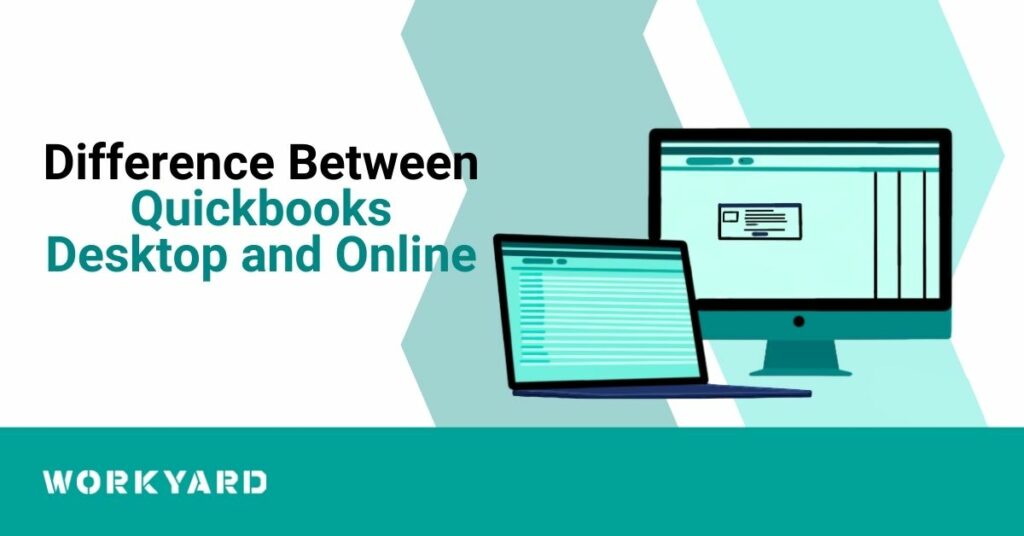QuickBooks comes in two primary versions: QuickBooks Desktop and QuickBooks Online. Each of these versions has its unique features and advantages, making it essential to understand the differences between them to choose the one that best suits your needs.
- Accessibility and Platform:
- QuickBooks Desktop: It’s a locally installed software. You need to install it on your computer, and your data is stored on that device or a network server.
- QuickBooks Online: It’s a cloud-based software accessible through a web browser or mobile app. Your data is stored in the cloud, allowing you to access it from anywhere with an internet connection.
- Data Security:
- QuickBooks Desktop: You have more control over your data and where it’s stored, which can be beneficial if you have strict security requirements.
- QuickBooks Online: Intuit manages data security in the cloud, which includes robust measures to protect your information. This can be advantageous if you’re concerned about data loss or damage.
- Updates and Maintenance:
- QuickBooks Desktop: You’re responsible for installing updates and maintaining your software.
- QuickBooks Online: Updates and maintenance are automatic, reducing your IT workload.
- Features and Customization:
- QuickBooks Desktop: The desktop version offers a broader range of features and is more customizable, making it suitable for complex businesses with specific needs.
- QuickBooks Online: It’s more streamlined and might not offer as many features, but it’s user-friendly and a better fit for smaller businesses and those without specialized requirements.
In summary, the choice between QuickBooks Desktop and Online largely depends on your business’s specific needs, size, and how you prefer to manage your financial data.
QuickBooks Desktop offers more control and extensive features, making it suitable for larger or more complex businesses. QuickBooks Online provides accessibility, automatic updates, and is generally a better fit for smaller businesses or those that require remote access to their financial data.

